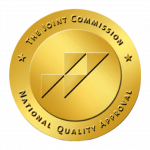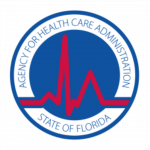Many people worry about their health insurance coverage. A person with alcohol or drug addiction may hesitate to seek treatment due to costs. Health insurance will cover rehab as long as the person has been diagnosed with a substance abuse disorder. It is important to understand that there are some limitations to what health insurance covers.
Health insurance will not cover any treatments unless they are medically necessary. For example, they require a doctor to provide a specific diagnosis to be covered for alcohol or drug addiction treatment. Speak to your doctor about your substance abuse and its impact on your health. There is no shame in seeking medical care. An open and honest dialogue with your family and health practitioner leads to a proper diagnosis. Approvals, referrals, as well as authorizations bring you one step closer to treatment.
Regarding alcohol or drug addiction rehab, health insurance coverage for addiction treatment is not automatic. As with most diagnoses, requiring medical records and a history of substance abuse is necessary. However, each individual policy is different. It’s important to understand what type of coverage you have or need. Further, how much your deductible is, and what the financial limitations are in order to avoid any surprises.
This article will give you introductory information regarding the types of insurance available. Additionally advising to learn what your health plan contains. Know your healthcare options, as well as the limits and restrictions to available services.
Types of Health Insurance Coverage
Health insurance coverage classifies as either public or private.
- Firstly, Private health insurance is accessible through private insurance companies. Coverage includes the cost of medical care, as well as hospitalization. Typically a policy that an employer or workplace provides.
- Secondly, Public Health Insurance, like Medicare and Medicaid, is available through the government. It covers the cost of medical care for those lacking private health insurance. This includes any person who is 65 years old or older. It also includes youth and adults over 18 years old with a disability under Social Security Administration guidelines.
Health insurance is the primary way that people get access to alcohol and drug addiction treatment. This is because the laws governing health insurance require coverage of essential treatments. Hence, alcohol and drug addiction rehabilitation are allowable.
In the US, the Affordable Care Act (ACA) requires health plans to cover mental health and substance abuse disorders. These qualify as requiring essential health benefits. This means that most people with a qualifying plan can get coverage for behavioral health care. Behavioral health care includes treatment for alcoholism or other substance abuse disorders.
Visit USA.gov for more information.
Seeking Treatment
Individuals with addictions and insurance coverage should use policies to the fullest extent. Health insurance provides vital care that everyone needs. In the case of addictions, seeking treatment will help conquer substance abuse. Choose to take steps and heal from addiction. Talk to your doctors and plan administrators. Treatment centers and social services have staff on hand to assist in navigating this process.
After establishing insurance coverage, work with your healthcare providers to determine appropriate services. These include:
- Inpatient services
- Outpatient rehabilitation
- Detoxification
- Holistic therapy
- Sober living
In conclusion, addiction is a chronic disease, but it is one that is treatable. Alcohol and drug addiction rehabilitation is an important step in the recovery process. Health insurance companies provide coverage for alcohol and drug addiction treatment. Understanding what your plan covers before seeking help is essential.
At Harm Reduction Center, our expert staff has experience in substance abuse and rehabilitation. We work closely with family members to connect and reach patients on a deeper level. Our mission is to empower those who suffer from addiction through comprehensive treatment. If you or a loved one is struggling with substance abuse, there is help at the Harm Reduction Center.














